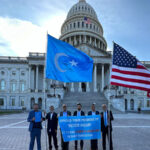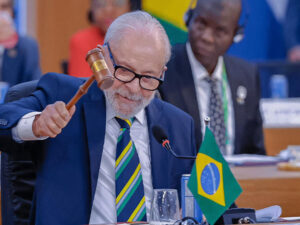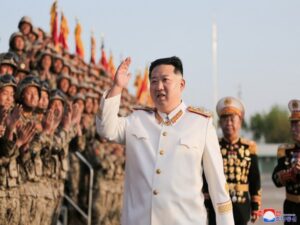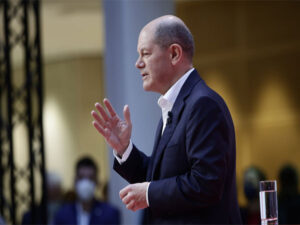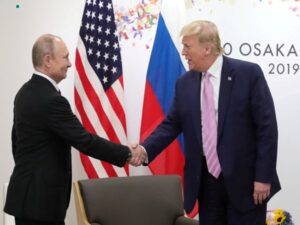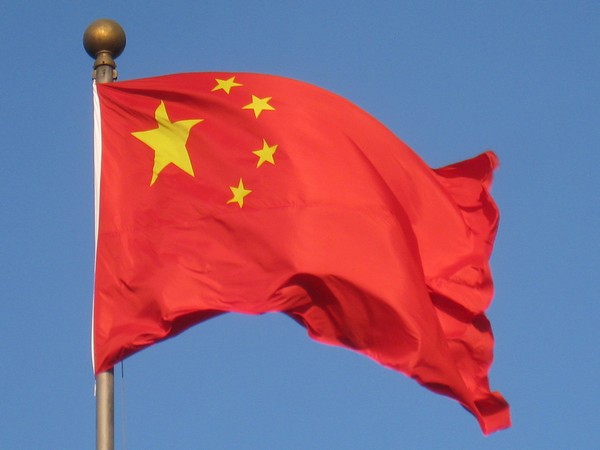
New Delhi [India], May 28 (ANI): Leaders of Germany, France, Italy, Japan, Canada, the United Kingdom, the United States, and the European Union jointly affirmed their support for economic “de-risking” in their relationship with China at the recent G7 Summit in Hiroshima, The Diplomat reported, but China has considered the move to be “containment”. Chinese officials and commentators have recently courted Europe vigorously, imploring European countries to distance themselves from the United States, and specifically to stay out of the alleged US containment campaign.
Beijing’s reaction to the G7 meeting suggests it sees the industrialized democracies moving closer to supporting what the Chinese call a US-led effort to “contain” China. That oversimplified perception has several important and negative ramifications for China, The Diplomat reported. The Diplomat is the premier international current-affairs magazine for the Asia-Pacific region.
In 2023, European countries moved toward implementing restrictions on investing in China, exporting semiconductors to China, and allowing China to compete in the European renewable energy market.
Earlier, Chinese opinion toward Western Europe has noticeably hardened, moving toward equating de-risking with containment. Wang Lutong, Ministry of Foreign Affairs’ director general for European Affairs, complained on May 10 that “Europe gives [China] a stab in the back… bullying China on economic issues.”
A May 11 editorial in the state-owned Global Times lamented Europe’s “submission and dependence on Washington’s comprehensive containment strategy against China.” From Beijing’s standpoint, the G7 outcome indicated a continuation, perhaps even an acceleration, of the negative trend. Hence China‘s Foreign Ministry on May 20 accused the G7 of “containing” China.
A Xinhua News Agency commentator followed up on May 25 that “the G7 interprets its own ‘risk’ as only induced by China, or in other words, only by containing China can it get rid of the risk.” This is despite the fact that the communique from the G7 meeting specified that the group does not favor containment: “Our policy approaches are not designed to harm China nor do we seek to thwart China‘s economic progress and development.”
Beijing seems unable or unwilling to grasp the very different lineages of “containment” and de-risking, The Diplomat reported.
Containment is associated with US policy toward the Soviet Union during the Cold War. It included political and military efforts to prevent (presumably Soviet-controlled) Communist parties from taking over additional countries. The economic aspect was a broad embargo against doing business with the Soviet Union.
Xi Jinping says the United States is practicing “comprehensive containment” and “all-around containment, encirclement, and suppression of China.” Other Chinese officials say the US is “seeking to suppress China through all possible means.”
These are gross exaggerations. In its trade with the United States in 2022, China was the beneficiary of a nearly USD 400 billion surplus. Washington did nothing substantial to stop China from building military bases in the South China Sea. US universities still train thousands of Chinese students annually in the STEM fields, The Diplomat reported.
While containment is a strategy by a great power to thwart a challenge by another great power for international strategic leadership, de-risking is wholly different, with more modest and defensive aims. The aim of de-risking is to avoid over-dependence on a potentially problematic supplier. China has placed itself in that category through its recent behavior.
The Chinese government now routinely uses its economic leverage to punish trading partners over political disputes. Already angry at Australia for taking steps to root out Chinese Communist Party interference in Australian politics, Beijing abruptly restricted imports of several Australian products after Canberra called on the World Health Organization (WHO) to investigate the origins of the COVID-19 pandemic, The Diplomat reported. China‘s internal politics now seems to be pushing the country toward a war over Taiwan, which would interrupt much of China‘s international commerce for an indefinite period.
In other words, Europe has ample justification for reducing its reliance on Chinese supplies out of self-defense, even completely absent any interest in suppressing China‘s economic development. China‘s inability to see the difference between “containment” and “de-risking” is a side effect of its refusal to engage in the introspection of its own behavior, which would be a necessary step toward remolding European policies.
Now that US officials have embraced the term “de-risking,” the United States and the Western European countries have found a unifying formula for a more coordinated China policy. Policy adjustments by the world’s leading economies aimed at decreasing reliance on Chinese suppliers will go a long way toward partial containment of Beijing’s influence, The Diplomat reported. This is a win for the United States‘ grand strategy and a loss for China‘s.
This article is written by Denny Roy for The Diplomat. He is a senior fellow at the East-West Center, Honolulu, Hawai’i. (ANI)




